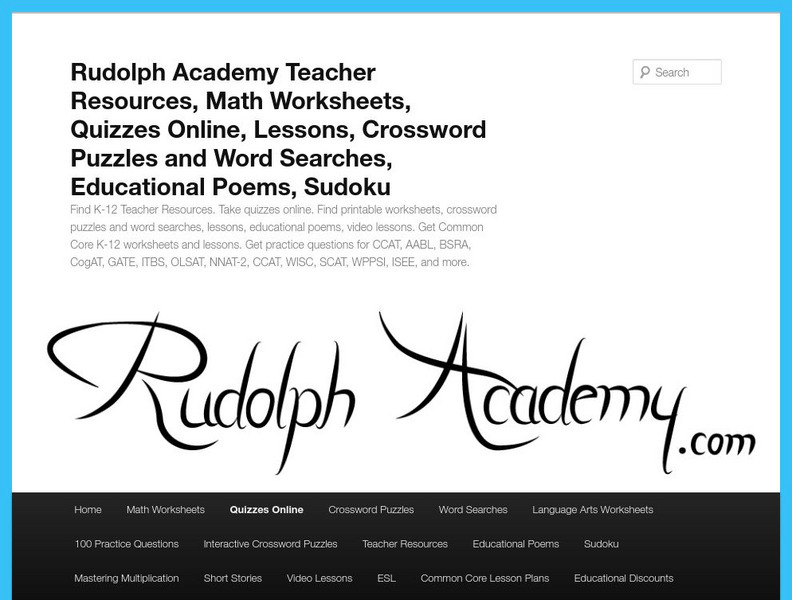Hi, what do you want to do?
Ted Nellen
Cyber English (By Ted Nellen): Allegory
This is a glossary entry for the term "Allegory" including multiple definitions for the term, links to other figures of speech, links to more information, and examples.
Other
Rudolph Academy: Figurative Language Quizzes and Practice Exercises
This site offers a multitude of figurative language quizzes (some by grade level), a PowerPoint presentation and links to much more. It features a 30 question quiz asking students to either read or listen to statements and then select...
E Reading Worksheets
E Reading Worksheets: Idiom Worksheets
This site provides seven worksheets to help students understand idioms and their figurative meanings better. In each exercise, students will explain the meaning of idioms that are embedded into sentences.
E Reading Worksheets
E Reading Worksheets: Personification Worksheets
This learning module provides remediation and extra practice with identifying and explaining personification in sentences. Reinforcement for personification is provided through the nine different worksheets.
Alabama Learning Exchange
Alex: Producing Poetic Podcasts (Hey, That's Alliteration!)
In this culminating lesson for a poetry unit, students will create a video podcast that summarizes a specific poem, analyzes the poet's use of literary elements, and infers the meaning of the poem (theme). The podcast must use a talk...
Quia
Quia: Rags to Riches: Idioms From Context
In this interactive, "millionaire-style" game, students read passages with idioms in them. Then they will select the correct explanation for each idiom.
PBS
Wnet: Thirteen: I Have a Metaphor
This lesson not only examines the message of Dr. King, but also the words themselves. This is a lesson in identifying the literary devices that he used in his "I Have a Dream" Speech. It will introduce the following literary devices:...
ClassFlow
Class Flow: Proverbs
[Free Registration/Login Required] In this flipchart the student identifies the characteristics of various genres and produces evidence of reading that responds to and analyzes the effects of sound, figurative language, and graphics in...












